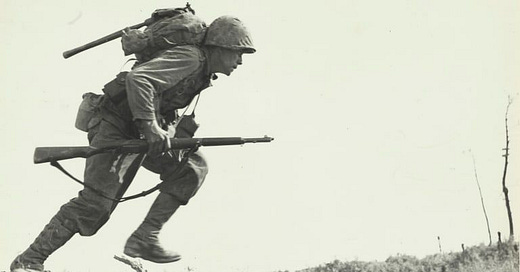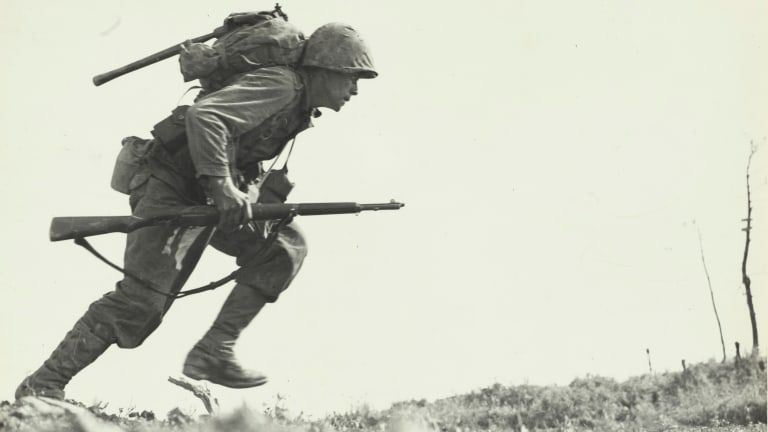On Hombres and Sissies
Before Mr. Durning landed any acting role, he landed on the beaches of Normandy.
I wrote this in 2012 and think about it every Memorial Day. None of these men died in the war, but their actions speak to what many men of a certain generation experienced. I read a statistic this past week that only 1-2% of those men are now still living. What strikes me about these famous actors’ experience is that it was the same experience many men had. These actors were not a thing apart from their fans.
Times have changed.
Respect.
"There's a grief that can't be spoken.
There's a pain goes on and on.
Empty chairs at empty tables,
Now my friends are dead and gone." - Herbert Kretzmer
The actor Charles Durning has died. Mr. Durning was sometimes referred to as the "king of character actors". Never the leading man nor the star, he nevertheless was a key contributor to many successful movies throughout his career. I first saw Mr. Durning in his role as Lt. Snyder in the movie The Sting. His character roles graced so many movies and TV shows that it's hard to imagine anyone not having been exposed to his work at some point, although probably very few people knew his name.
What prompted me to write about Mr Durning wasn't his role as an actor, but his sacrifice as a man. You see, before Mr. Durning landed any acting role, he landed on the beaches of Normandy. He was in the first wave of troops during the assault on D-Day. If you know anything about the landings on D-Day, you know that the first troops to land were putting their heads down and walking right into a shredding machine. The situation on the beach was so deadly that Mr. Durning was the only member of his unit to survive the day. He went on to win a silver star, bronze star, and three purple hearts for his actions during the war. One of his purple hearts came from being bayoneted by a German soldier, whom Mr. Durning subsequently killed with his bare hands and a rock.
Mr. Durning was an hombre at war, but like so many doers of great deeds and makers of great sacrifices, he was extremely reluctant to talk about his military service. He told one interviewer that he wouldn't discuss his days during the war because he "didn't like to cry during interviews".
"There's a grief that can't be spoken."
Mr. Durning was not the only actor who was secretly a hero from WWII. James Arness, star of Gunsmoke and player of the role "Matt Dillon" limped for the rest of his life as a result of the wounds he received during the marine landing at Anzio, Italy during the war. Numerous surgeries later, Mr. Arness was able to walk again but he ended up with the trademark limp (and chronic pain) that Americans saw every week while watching the show that became the longest running TV drama in American history. Mr. Arness was awarded the bronze star, purple heart, and the European-African-Middle Eastern Campaign Medal with 3 bronze battle stars.
And who can forget Jimmy Stewart? Probably millions of Americans sat down, according to their tradition, and watched It's A Wonderful Life this past Christmas. Yet few people seem to know that this was the first movie made by Mr. Stewart upon his return from the war. During the war, Mr. Stewart began a life-long career in the Air Force as a bomber pilot, only retiring from the Air Force reserve in 1968 at the rank of Brigadier General. During the war, Mr. Stewart flew over 20 bombing missions. Many of these missions were deep into Nazi-controlled Germany.
Bomber pilots had one of the highest mortality rates during the war, with a 50% likelihood of never coming home. Mr. Stewart was awarded the Distinguished Flying Cross with two Oak Leaf Clusters, the Air Medal with three Oak Leaf Clusters, and the French Croix de Guerre with Palm. He flew his last combat mission as an observer on a B52 bombing run during the Vietnam war. In real life, Mr. Stewart's role during WWII was closer to that of his fictional little brother, Harry Bailey, than the role he played in the movie.
When Mr. Stewart returned from the war, like Mr. Durning, he declined to publicize or exploit any of his heroics.
What interests me about these actors is the extent to which they weren't separate from the rest of America but rather shared the life and experiences of those who became their fans. These actors were, at one level, regular Americans, rubbing shoulders and eating meals with other regular folks during their military service. Jimmy Stewart was a big star even before the war, and yet he didn't view his stardom as any kind of exemption from immersing himself in service to the country in which he lived.
These men may have been actors in their careers, but they were gritty doers of great deeds in real life. Hombres of strength and courage when it counted. To borrow words from the apostle John, "they did not love their lives so much as to shrink from death."
How different, then, did these men seem from so many of the current crop of actors? I watch the previews and some movies and see men who very often resemble bloated, waxed, preening pretenders by comparison. Having no obvious accomplishments in their lives, they apparently while away the hours bulking up at the gym and getting their pictures taken at night clubs. This is probably too harsh. After all, no generalization can get at the specifics in a way that's completely fair.
But it just seems to me that, in some fundamental way, we've gone from watching hombres who happened to be actors, to watching sissies pretend to be hombres.
R.I.P. Charles Durning.




